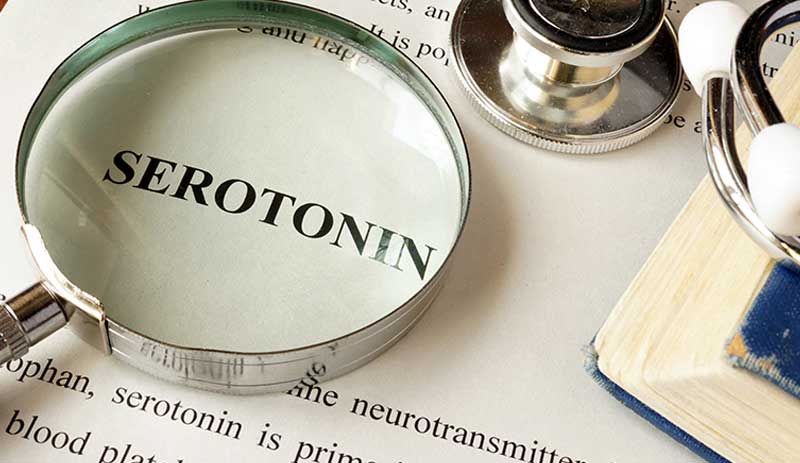If you’ve ever wondered, “how long for Lexapro to work?” you’re not alone. It can be one of the first questions people ask as they seek relief from the symptoms of depression and anxiety, especially when starting Lexapro for the first time.
In this comprehensive guide, we’ll explore the mechanism of Lexapro, its effectiveness in treating various mental health conditions, potential side effects of Lexapro, and the crucial role it plays in a holistic treatment plan. Whether you’re considering Lexapro for yourself or someone you care about, understanding its timeline and impact can be invaluable in the journey toward improved mental health and finding the right treatment approach.

Lexapro, known by its generic name escitalopram, is a commonly prescribed medication for both mood and anxiety disorders. It is classified as a Selective Serotonin Reuptake Inhibitor (SSRI), and works by increasing serotonin levels in the brain, consequently helping to regulate mood and reducing anxiety symptoms.
SSRIs increase serotonin levels in the brain by blocking the reabsorption (or reuptake) by nerve cells after it has been released into the synapses. This increases the concentration of serotonin within the synaptic gap and means that more serotonin is available for communication between the brain cells.
Healthcare providers often prescribe Lexapro because it is considered an effective and well-tolerated medication for many individuals experiencing depression, anxiety disorders, and even OCD. However, it’s essential to talk to your doctor to determine the most appropriate treatment and dosage based on your specific needs and medical history.
It typically takes several weeks of taking Lexapro consistently to start working and see its full effect for depression. While many doctors recommend taking it regularly for at least 6 weeks before deciding if it is effective, some people may notice improvements in mood or energy within the first few weeks of lexapro treatment.
Depression is often associated with an imbalance of neurotransmitters, including serotonin which Lexapro directly increases as explained above. The elevation of serotonin helps to improve mood, reduce feelings of sadness or hopelessness, and increase interest in activities.
It’s important to note that while Lexapro can be highly effective in treating depression, individual response to lexapro may vary. The prescribed dosage and a person’s particular physiology can both have an impact on how long it takes for lexapro to start working.
Lexapro should not be expected to act as a ‘magic pill’ for depression, and while it will help to alleviate symptoms of depression, it will not ‘cure’ a depressive episode. Accessing talking therapies with a trained mental health professional is the best way to recover from and combat depression while your body adjusts to the medication.
Similarly to those experiencing depression, those experiencing anxiety can expect to take several weeks for lexapro to start working before experiencing its full benefits. The timeline for each individual is unique, and the relief of anxiety symptoms will depend largely on their severity and how your body responds to the medication.
Anxiety disorders, including generalised anxiety, social phobias and more, often involve an imbalance in neurotransmitters, including serotonin. As it does with depressed individuals, the increase in serotonin within the synaptic gaps caused by Lexapro helps to stabilise mood and alleviate symptoms such as excessive worry, restlessness, and physical tension.
It is crucial to continue taking Lexapro as prescribed in order to achieve and maintain the desired therapeutic effect, even if anxiety symptoms start improving. Permanent ‘rewiring’ of the brain can take months, and it’s important to stay with your course of treatment as advised by your doctor.
Lexapro is often used as part of a comprehensive treatment approach for anxiety disorders. In addition to medication, therapy (such as cognitive-behavioural therapy) can be an essential component of anxiety management.

Recognizing the signs that lexapro is working can help you understand your progress and maintain motivation during treatment. Here are key indicators that your lexapro treatment is having a positive effect:
As weeks for lexapro treatment continue, you may notice:
Most people start to feel some benefits within 2-4 weeks of starting lexapro, but the full effects of lexapro typically take 6-8 weeks to manifest. If you don’t notice any improvement after 6-8 weeks, it’s important to talk to your doctor about your response to lexapro.
If after 8 weeks you experience:
It may be time to explore other treatment options with your healthcare provider.
When starting lexapro, it’s normal to experience some common side effects as your body adjusts to the medication. Understanding these effects can help you prepare for your treatment journey.
The most frequently reported side effects of lexapro include:
Most common side effects are mild and temporary, typically improving as your body adjusts to the medication over the first few weeks. However, lexapro can cause more serious side effects in rare cases.
Less common but potentially serious side effects, such as allergic reactions or significant changes in mood, should be discussed with your healthcare provider promptly. It’s important to follow your provider’s guidance on dosage and report any unusual or concerning symptoms.
You may have read online that some SSRI medications, like Lexapro, carry a warning that lexapro may increase risk of suicidal thoughts or behaviours, especially in young adults and adolescents. However, it’s crucial to note that this risk is primarily associated with the early stages of treatment when individuals may not yet experience the full benefits of the medication.
Lexapro is not typically dangerous when taken alone, but when taken in combination with other medications, such as blood thinners or herbal medications, there can be risks for harmful drug interactions. Please ensure that your prescribing doctor is aware of any and all medication that you are taking to prevent any unintended pharmacological interactions.
In addition to potential risks of interactions with prescribed medications, Lexapro can negatively interact with recreational drugs such as alcohol. For depressant medications it can potentiate the sedative effects, and with stimulant drugs such as cocaine it can be particularly dangerous.
Regular communication with your healthcare provider is essential for successful lexapro treatment. You should contact your doctor if:
Remember that finding the right treatment for mental health conditions often requires patience and collaboration with your healthcare team. If lexapro doesn’t provide the expected benefits, your doctor can help you explore other treatment options that may be more suitable for your specific situation.
Most people can expect lexapro to start working and begin experiencing therapeutic benefits within 4-6 weeks of consistent use. However, the full effects of lexapro may take up to 8 weeks to fully manifest. Patience is essential during the early stages of treatment, and keeping in regular, honest contact with your prescribing physician is crucial to protecting your wellbeing and health.
Key takeaways about your lexapro treatment timeline:
Remember that while medication can be a valuable tool for managing depression, anxiety, and other mental health conditions, there is no magic cure. Lexapro treatment is just one part of what should be a comprehensive treatment plan that works on your mental, physical, and social health to help you live the best life possible.
If you’re struggling with depression, anxiety, or other mental health conditions and considering treatment options, don’t wait to seek help. Contact our specialized treatment center today to discuss how we can support your journey toward better mental health with comprehensive, personalized care that addresses both mental health and any co-occurring addiction concerns.